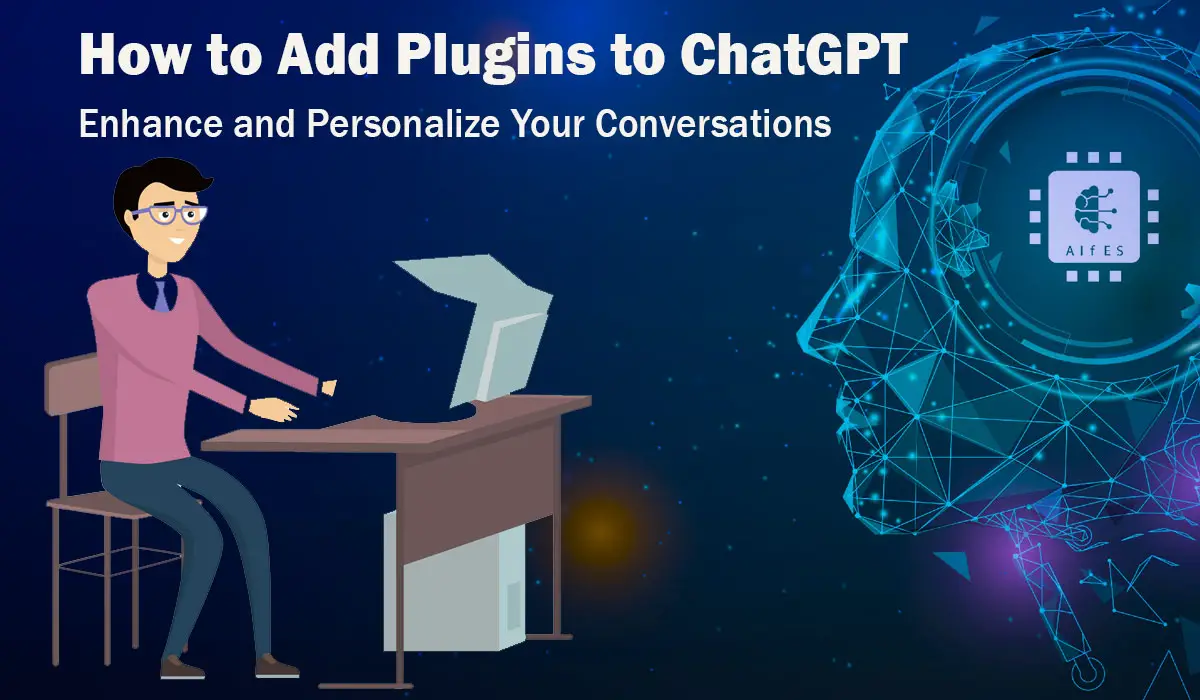ChatGPT, developed by OpenAI, is an advanced language model that enables users to have interactive and dynamic conversations. It provides a powerful platform for developers and users to enhance and personalize their ChatGPT experience through the use of plugins. In this article, we will explore what ChatGPT plugins are, their functionality, how to install them, and practical examples of their usage.
What are ChatGPT Plugins?
ChatGPT plugins are additional modules or extensions that can be integrated with ChatGPT to extend its capabilities. They provide a way to customize and enhance the conversational abilities of ChatGPT by adding specific functionalities. Plugins act as a bridge between ChatGPT and external services, APIs, or scripts, allowing users to interact with various services and access information in real-time. Read this also ChatGPT Plugin
The Functionality of ChatGPT Plugins
ChatGPT plugins offer a wide range of functionalities that can greatly enhance the user experience. Some common functionalities include:
- Language Translation: Plugins can enable ChatGPT to translate text or conversations into different languages, making it easier to communicate with users from diverse linguistic backgrounds.
- Information Retrieval: Plugins can connect ChatGPT with external databases or APIs, allowing it to retrieve and provide real-time information on a wide range of topics.
- Task Automation: Plugins can automate specific tasks, such as sending emails, scheduling appointments, or generating reports, by integrating with relevant services.
- Sentiment Analysis: Plugins can analyze the sentiment of a conversation and provide feedback or suggestions based on the detected sentiment.
- Content Generation: Plugins can assist in generating specific types of content, such as code snippets, product descriptions, or creative writing prompts.
Number of ChatGPT Plugins
The number of ChatGPT plugins available is continuously growing as developers create and contribute new plugins to the ecosystem. OpenAI has been actively encouraging developers to build and share their plugins, fostering a community-driven approach to expand the functionalities of ChatGPT.
Joining the ChatGPT Plugins Waitlist
To stay updated with the latest ChatGPT plugins and gain access to new features, you can join the ChatGPT Plugins Waitlist. By joining the waitlist, you’ll receive notifications about new plugins, early access opportunities, and updates on the development of ChatGPT’s plugin infrastructure.
Installing Plugins on ChatGPT
Installing plugins on ChatGPT is a straightforward process. OpenAI provides comprehensive documentation and guidelines on how to install and configure plugins effectively. The installation typically involves adding the plugin code or package to your ChatGPT environment and ensuring that it’s properly integrated and compatible with the platform.
Adding Queries with Installed Plugins
Once you have installed the desired plugins, you can start utilizing their functionalities by adding queries or commands during your conversations with ChatGPT. By incorporating specific keywords or triggers recognized by the plugins, you can prompt ChatGPT to perform the desired actions or retrieve relevant information.
Using ChatGPT Plugins
To use ChatGPT plugins effectively, it’s essential to understand their capabilities and functionalities. Familiarize yourself with the documentation provided by the plugin developers to maximize the potential of each plugin. Experiment with different plugins and combinations to create unique and tailored conversational experiences.
Practical Examples
Let’s explore a few practical examples of how ChatGPT plugins can be utilized:
- Weather Plugin: By integrating a weather plugin, users can ask ChatGPT about the current weather conditions in any location and receive real-time updates.
- Language Translation Plugin: With a language translation plugin, ChatGPT can assist in translating phrases or entire conversations between different languages, facilitating multilingual interactions.
- Code Snippet Plugin: Developers can use a code snippet plugin to quickly generate code snippets or provide syntax suggestions based on the programming language being discussed.
- Product Recommendation Plugin: By incorporating a product recommendation plugin, ChatGPT can suggest relevant products or services based on user preferences or specific queries.
Conclusion
ChatGPT plugins offer an exciting opportunity to enhance and personalize your conversations with the advanced language model. By leveraging the functionality of plugins, you can expand ChatGPT’s capabilities, automate tasks, access real-time information, and create unique conversational experiences. Stay updated with the latest plugins by joining the ChatGPT Plugins Waitlist and start exploring the vast potential of this powerful tool.
FAQs
- Q: How can I join the ChatGPT Plugins Waitlist?
- A: You can join the ChatGPT Plugins Waitlist by visiting the official OpenAI website and providing your email address. Notifications and updates will be sent to you via email.
- Q: Are ChatGPT plugins free?
- A: The availability and pricing of ChatGPT plugins may vary. Some plugins might be offered as free, while others may require a subscription or usage-based payment model. Refer to the plugin documentation or developer for more information.
- Q: Can I create my own ChatGPT plugins?
- A: Yes, you can create your own ChatGPT plugins. OpenAI provides comprehensive documentation and resources to guide developers in building and integrating custom plugins.
- Q: How can I find new plugins for ChatGPT?
- A: OpenAI actively promotes and encourages developers to create and share their plugins. You can find new plugins by joining the ChatGPT Plugins Waitlist, exploring developer communities, or following OpenAI’s official announcements.
- Q: Are plugins compatible with all versions of ChatGPT?
- A: Compatibility may vary depending on the specific plugin and the version of ChatGPT you are using. Ensure that the plugin documentation specifies the supported ChatGPT versions and compatibility requirements.

